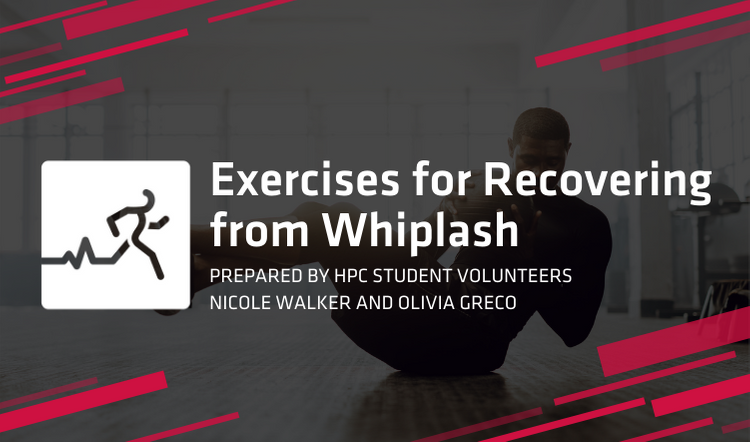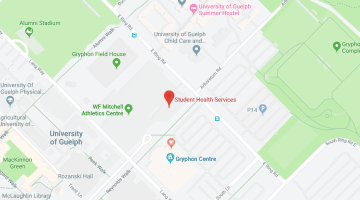

Written by HPC Student Volunteers Nicole Walker and Olivia Greco
Whiplash Associated Disorders (WAD) describes injuries sustained from sudden acceleration-deceleration movements. WAD is considered the most common outcome after "non-catastrophic" motor vehicle accidents.
Possible Whiplash Associated Disorder Symptoms:
- Motor Dysfunction (restricted range of motion, spine instability, etc…)
- Sensorimotor Dysfunction (loss of balance, lack of eye movement control)
- Sensory Dysfunction (psychological distress, PTSD, sleep disruption, concentration and memory problems, anxiety, depression, etc…)
- Degeneration of Cervical Muscles
- Tinnitus
- Dizziness
- Thoracic, facial, and limb pain
WAD Recovery Exercises:
If you’re recovering from whiplash, try these three stretches to help with your recovery that can be attempted from the comfort of your chair!
- Chin Tucks: Lower your ear to the same shoulder and gently pull your head deeper using your hand. Hold for 20 seconds and repeat the stretch 3-5 times on each side.
- Levator Scapular Stretch: While keeping your shoulders back and down, hold the bottom of your chair with one hand. Turn your chin towards your opposite shoulder until comfortable. Place your free hand on the top of your head and gently pull down. Hold for 20 seconds, repeating on each side.
- Side Stretch: Looking forward, tuck your chin by moving your head backward. Hold for 5 seconds and repeat it 10 times. Nothing beneath your head should move.
If you are recovering from Whiplash or experiencing any of the above symptoms, seeking help from a professional is critical. Our staff at HPC may be able to help by developing and working through a personalized treatment plan that promotes optimal healing.
About the HPC Student Volunteer Program*
Each year, approximately 30 University of Guelph students are selected following a competitive application process to take part in the “HPC Volunteer Program.” This program provides an opportunity for U of G student volunteers to translate their academic knowledge into practice, while gaining first-hand experience and mentorship from the team of certified physiotherapists and chiropractors at the University of Guelph’s Health and Performance Centre. As a result of this exceptional partnership between the University of Guelph and the HPC practitioners, students can gain valuable insight on evidence-based practice prior to graduating from their respective programs. Click here for more information on co-curricular experiential learning opportunities at the University of Guelph [2]. The following article was written by members of the 2020-21 HPC Student Volunteer Program.
